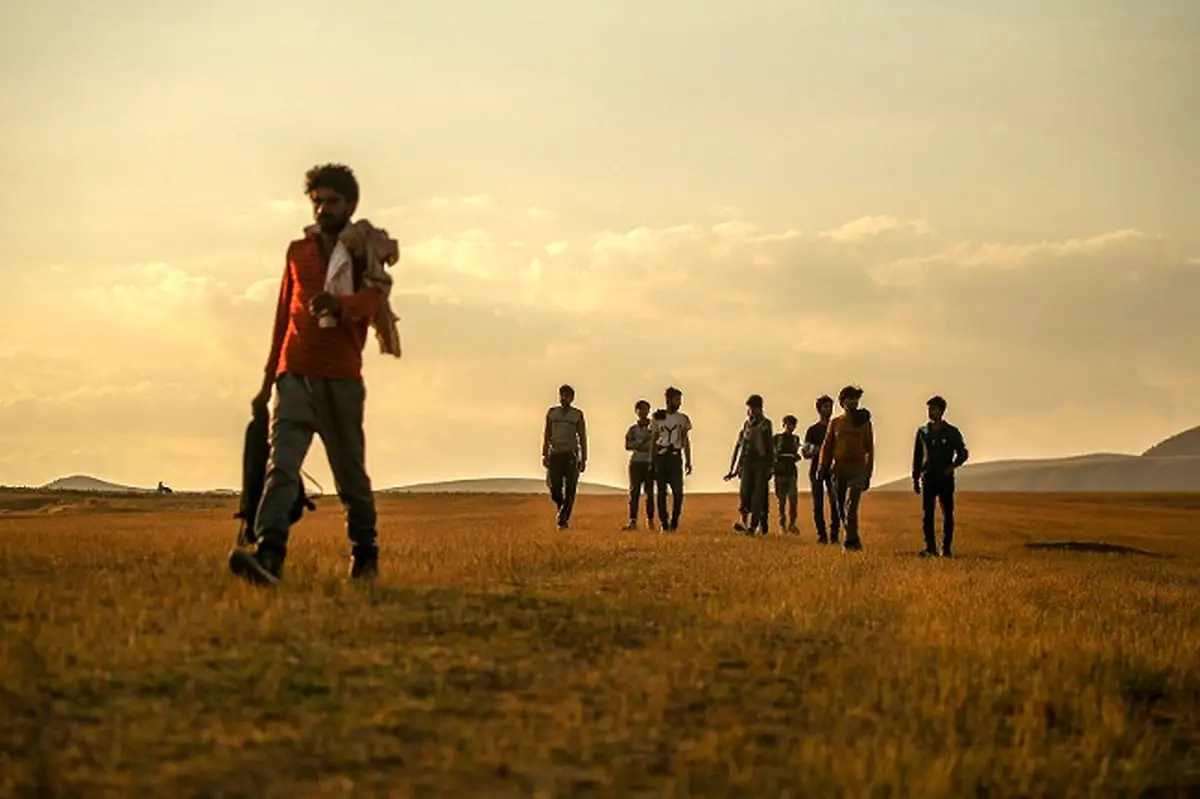Turkish wall on Iran border limits migrant flows

The Afghans who make it this far spend days hiding from law enforcement, devising ways to get to big cities such as Izmir and Istanbul before finding smugglers to take them to Europe.
"I am coming from Kandahar. I have been on the road for 25 days," said Mohammed Arif, 18, who paid $700 to a Turkish smuggler but was dropped off long before he could reach Istanbul.
"It is dangerous to return. Where would we go?" he asked in Dari.
The Taliban's lightning offensive has revived memories in Europe of a 2015-16 refugee crisis that Turkey helped stop by sheltering millions of people.
The U.N. has recorded no "large-scale" moves across Afghan borders following the U.S. withdrawal of the U.S. troops and the fundamentalist regime's return to power after 20 years of war.
EU officials say the number of crossings into Europe by Afghans dropped by roughly 40% in the first six months of the year because of coronavirus-related border restrictions.
Six bullet casings lie scattered in the riverbed near a road where armoured vehicles patrol the eastern Turkish border village of Bakışık at the break of dawn.
But young Afghans such as Arif give both EU nations and Turkey – where public opinion is turning against migrants – reasons to be concerned.
"If it hadn't been for this misfortune, we wouldn't have come here," Arif said of the Taliban.
Sensing the nation's mood, President Recep Tayyip Erdoğan has vowed to put a "complete stop" to irregular migrant crossings.
A 243-kilometer (151-mile) concrete wall, topped with barbed wire and surrounded by trenches, is being erected along its 534-kilometer frontier with Iran.
Turkish officials told Agence France-Presse (AFP) that 156 kilometers have already been built, greatly limiting migrant flows.
But security officials say that tens of thousands of Afghans are believed to be amassing on the Iranian side.
Arif and dozens of other Afghans AFP encountered – all of them men – crossed a borderless section and then found temporary shelter behind some railway tracks in Tatvan, on the western shores of Lake Van.
"Afghanistan is finished," said Nakivillah Ikbali, 19, whose 15-day journey from Mazar-i-Sharif in Afghanistan took him to Pakistan and Iran.
"It will be even worse now. I am 19. I would love to go to school or mosque, but my life is gone."
Others like Arman Ahmadi, 17, are making their second attempt at escape.
He was deported last year after being caught in Istanbul, where he worked illegally as a barber and says he would love to settle in Turkey for good.
"Your state (Turkey) tells me to go to Afghanistan, but there's a war," he said. "I don't want to go to Europe. If Turkey provides me shelter, I want to stay."
END
